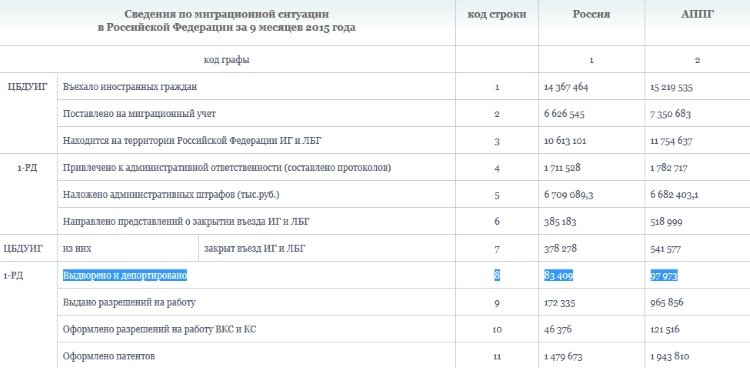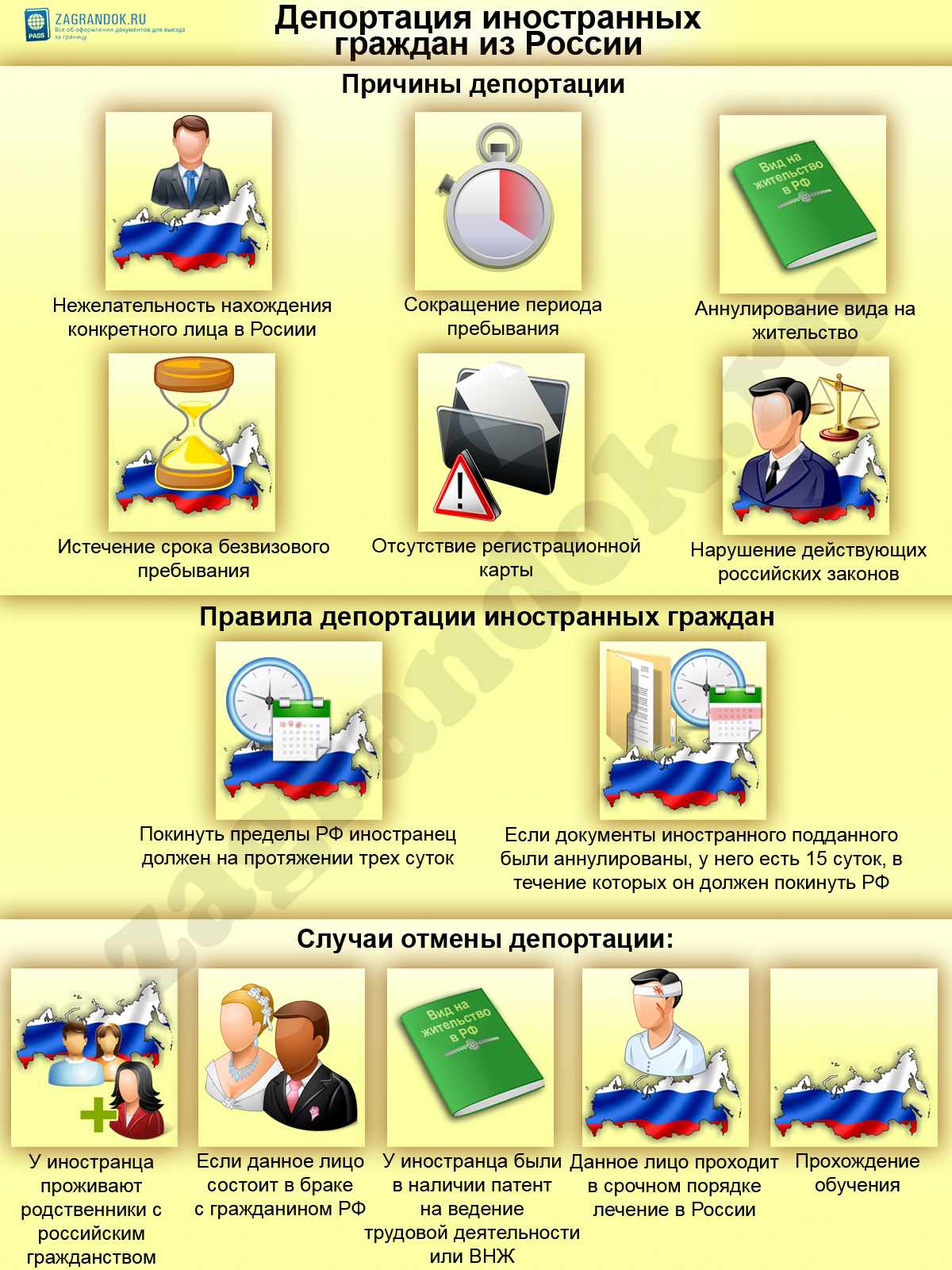Deportation: What is it and who she threatens
The Russian Migration Service has always strictly belonged to violation of the residence rules by foreigners and stateless persons. However, since August 2013, measures became even more severe. Tell me what is deportation and who risks exposed to this procedure?
The European Convention on the Protection of Rights and Fundamental Freedoms of a person states that citizens of the state cannot be sent from its territory or prevent them from returning. And the International Criminal Court calls forced relocation of the country's population against humanity.
According to Federal Law of the Russian Federation (No. 115-ФЗ), deportation is an administrative penalty. It lies in forced displacement (IG) or (LBG) beyond Russia without the right to return for 3-5 years. The more serious an offense, the longer the violator cannot return to the Russian Federation.

It is rather sharp. According to data, hundreds of thousands of illegal immigrants are deported annually, and these figures are growing steadily.

Sometimes deportation is the only way to cope with this problem. However, it is impossible to deport arrival only because he is not a citizen of the Russian Federation. This form of punishment is applied only if a person has no legitimate grounds for further stay in the country.
Usually deported voluntarily leaves the country's territory. But if the migration service has reason to believe that the IG can evade departure from Russia to the time prescribed period, FMS staff will prescribe a convoy to accompany the violator to the border checkpoint.
Rules of deportation from Russia
The decision to deport the II is taken by the head of Russia after analyzing the materials submitted by the head of the structural unit. Before making a decision, a foreign citizen will be held in a special institution of the migration service. It will be provided with meals and medical care. 
The deportation procedure is carried out under the law "On the situation of foreign citizens in the Russian Federation". This document prescribes a foreigner to leave Russia within 3 days after the expiration of its stay.
The foreigner will be invited to a meeting with an employee of a migration service, where he learns about the decision taken and receives it a copy. In his document certifying the identity, and on the outbound tube of a migration card will be put a stamp on the ban entry in the Russian Federation. A foreigner will pass mandatory fingerprint registration. After that, the accounting will be headed for him, the storage period of which is 10 years.
As soon as the decision to deportate will be made, the representative of the FMS will send this information to the Russian Foreign Ministry and to the Organization, inviting IG (to the Embassy, \u200b\u200bConsulate, Legal / Individual). 
If a foreigner does not agree with this measure of punishment, he can appeal it for 10 days from the date of the resolution.
Who pays the expulsion
Deportation from the country is due to:
- personal funds ig;
- inviting parties;
- embassies or Consulates of the country, whose citizen is a foreigner.
If it is impossible to install, who is an inviting party, and the deporte itself does not have enough amount, all expenses carry the territorial division of the FMS. Tickets or other travel documents, as well as visas (if necessary), are purchased for federal budget.
For whom the punishment does not apply
There are a number of categories of foreigners / individuals without citizenship, in relation to which this type of administrative punishment does not apply. These include employees of diplomatic / consular institutions, as well as persons:
- requiring asylum;
- received political asylum;
- approaching refugees on recognition.
Lost / devoid of status cannot be deported, if they are threatened by persecution on racial, religious, social and other reasons.
Causes of deportation
There is an opinion that even an ordinary tourist can touch forced deportation. In which cases a foreigner may face this type of punishment? As a rule, there must be good reasons for expulsion from the country:
Deportation is practiced in many parts of the world.
In the case of expulsion, it is carried out in all countries of the Schengen Agreement, and all the materials of the case immediately fall into the system information base.
From Thailand, the authorities deport the foreigner for the exercise of work without official permission or the acquisition of land. Leave the UAE in force will have to all who disturb the dry law. And from China is sent for hooliganism and immoral behavior. The prohibition on the entry is sometimes for 10 years.
How and where is the easiest to get citizenship: video





